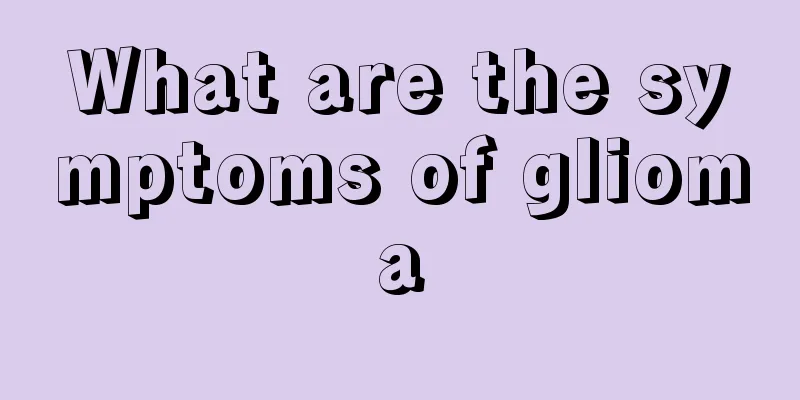What are the symptoms of glioma

|
There may be many friends who have not heard of the disease of glioma. Glioma is a tumor mainly occurring in the neuroectoderm. This tumor can damage the glial and nerve cells, and further affect the patient to cause symptoms such as headache, nausea and vomiting, and unstable standing. Therefore, everyone should pay attention to this disease. 1. Astrocytoma The malignancy is not high, the growth is slow, the course of the disease is long, and the symptoms appear earlier when the lesions are located under the tentorium. The local symptoms of lesions in different parts are different, but the progressive chronic increase in intracranial pressure is the same. It is mainly treated with complete surgical resection, supplemented by radiotherapy + chemotherapy, and brain herniation occurs in the late stage. 2. Astroblastoma (Astrocytoma III) The clinical manifestations are similar to those of astrocytoma, but the disease progresses faster, with an average course of about one and a half years. 3. Glioblastoma multiforme (astrocytoma IV) The tumor is highly malignant, grows fast, and has a short course of 3 months on average. Some tumors develop with bleeding, and symptoms of increased intracranial pressure are obvious. Many patients also have epileptic seizures. Localized symptoms are prominent and develop rapidly, with corresponding symptoms occurring depending on the location of the tumor. 4. Ependymoma Occurs in the ependymal cells of the ventricular system and the underlying glial epithelial cells. It is more common in children and young people. It is located in the ventricles and may extend into the brain parenchyma. The tumor is large and occasionally multiple. The average course of the disease is one year. Those located in the fourth ventricle usually have a shorter course. The disease is often manifested by symptoms such as increased intracranial pressure, such as headache and vomiting. 5. Medulloblastoma It is a common type of brain tumor in children, mostly located in the cerebellar vermis, protruding into the fourth ventricle or filling the ventricle, forming obstructive hydrocephalus. There may be bleeding in the tumor. The disease is characterized by headache, vomiting, etc., and is also accompanied by unstable gait and standing. |
<<: How to treat toenail growing into flesh
>>: What's the matter with sore and weak legs
Recommend
What are the maintenance methods of purple clay teapots?
Friends who like to drink tea will prepare a set ...
Does whiskey have a shelf life?
Many people like to drink in life. In recent year...
Which method is the best for treating small liver cancer? Teach you how to choose the treatment method for small liver cancer
Reasonable selection of treatment methods for sma...
Can I eat mushrooms after removing a mole?
Some dietary taboos need to be paid attention to ...
What to eat to prevent liver cancer? Develop five lifestyle habits to prevent liver cancer
Liver cancer is the most common malignant tumor i...
Can drinking boiled sugarcane water relieve cough?
Sugarcane is a fruit that tastes very sweet and c...
What is the correct way to use thickener?
Maybe many people don’t know what thickeners are....
What are the symptoms of early rectal cancer
What are the symptoms of early colorectal cancer?...
Comminuted fracture of talus
In most cases, comminuted fractures of the talus ...
What is the difference between medical insurance and critical illness insurance?
In real life, health insurance is a type of insur...
How much does it cost to cure colorectal cancer
Colorectal cancer is one of the most serious canc...
What are the symptoms of babies with fibroids
What are the symptoms of babies with fibroids? Ma...
Multifunctional cooking pot
Nowadays, many people like to cook, not only beca...
Commonly used drugs for malignant hamartoma
Hamartomas are generally benign tumors, but a sma...
Is surgery feasible to treat obsessive-compulsive disorder?
Obsessive-compulsive disorder is a common mental ...









